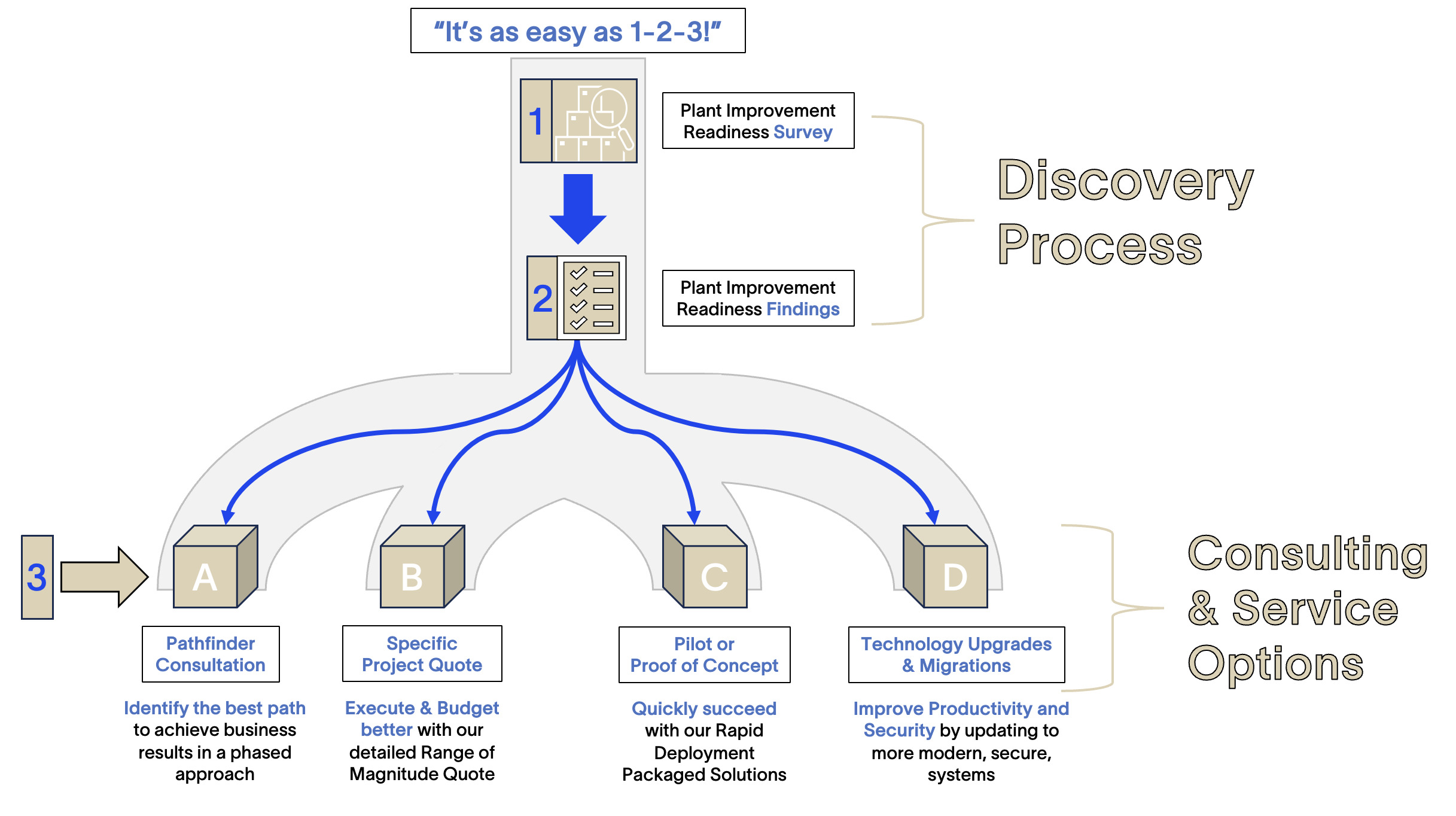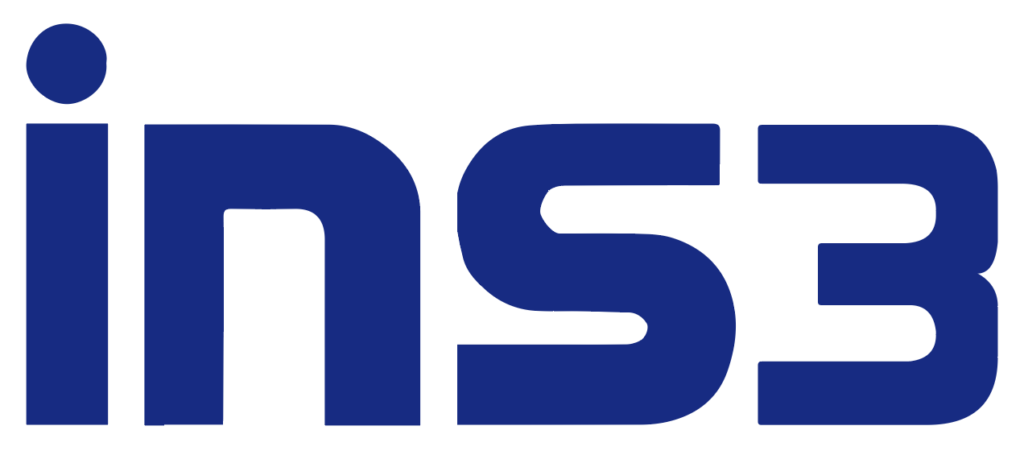Manufacturing Solutions Consulting and SCADA System Integration
Transforming Your Business With Smart Manufacturing, SCADA, Data Analytics and MES Solutions.
INS3 Consulting and System Integration services are based on our proven processes designed to take your manufacturing operation to the next level. Our team has delivered operational business results for our manufacturing and industrial clients for over 30 years.
INS3: Your System Integrator for Manufacturing Data Analytics
Industrial Data Infrastructure
Connect to your machines, collect data, store the data, and deliver information to the appropriate people, or systems in a secure way.
MES Solutions & Manufacturing Intelligence
Implement data driven systems that solve manufacturing issues like quality, efficiency, downtime, scheduling, consumption, connection to ERP, and more.
Data and SCADA Modernization
Upgrade or migrate SCADA systems, move to a modern architecture process monitoring and data analysis
Manufacturing Data Analytics
Gain a competitive edge by leveraging Big Data, IIOT, and Industrial Data Analytics for manufacturing. A clear path to results driven analytics.
Pathfinder Approach
Our proven Pathfinder Process is scalable to your issues and identifies where opportunities exist to leverage existing plant floor data. Pathfiner results consist of a detailed phased approach and budget aligned with meeting your operational goals.
Expert Team
Our team of experts has years of experience in helping companies implement smart manufacturing solutions and Industry 4.0 technologies. We have the skills and knowledge to guide you through every step of the process.
Higher Success Rate
By implementing intuitive Industry 4.0 solutions and Operational Change Management, you can improve the adoption and success rate of any change initiative within your organization. OCM takes into account the people, processes, and systems, and ensures that they are aligned with the goals of the initiative.
Leveraging Existing Industrial Infrastructure
INS3's proven solutions leverages existing plant floor systems and infrastructure. We help your organization improve operations, reduce costs, and enhance your overall performance by optimizing what you have and introducing new technologies only where needed.
Time Sensitive Results
We recognize that speed is important in today’s fast-paced business environment. That’s why we work quickly and efficiently to help you achieve your operational goals as soon as possible. Whether you need to improve your production processes, optimize your supply chain, or enhance your overall performance, we’re here to help.
Competitive Advantage with Smart Manufacturing
By implementing smart manufacturing and Industry 4.0 solutions, you can gain a competitive advantage over other manufacturers who have not yet adopted these technologies.
Systems Integration with our Proven Pathfinder Process
The Pathfinder process is designed to help manufacturers identify opportunities and provide valuable problem-solving solutions to improve their equipment effectiveness and processes.
The Pathfinder process begins with a digital walk-through of the facility by an expert INS3 resource, who can identify where gaps exist in meeting the organization’s objectives. From there, an approach is defined and discussed to determine the quickest path to achieving operational goals. The goal is to start small and get a quick win, utilizing both existing plant floor systems and the expertise of personnel and specialists. The Pathfinder process also emphasizes leveraging off-the-shelf and available technologies, reducing the time-to-value with proven results.

Our Customers
Join these Manufacturing Leaders
Join the ranks of top-performing manufacturers who have harnessed the power of Industry 4.0,Industrial Data Analytics Solutions, SCADA and MES Solutions.












Why Choose INS3 as your System Integrator?
At Industrial Network Systems – INS3 we pride ourselves on our experienced team in different kinds of System Integrations.
Our professional team has a deep understanding of the latest technologies, including Tatsoft, GE iFix, Ignition, Wonderware and Rockwell, and we work closely with our customers to develop tailored solutions that meet their specific needs and requirements.
We are also experts at the latest and legacy process historian technologies, including GE Historian, Inductive Automation Ignition Historian, Wonderware Historian, Aveva Historian, OSISoft PI Historian and Rockwell FactoryTalk Historian and more, and we work closely with our customers to develop tailored solutions that meet their specific needs and requirements.
30+
Years of Transforming Businesses
2,337+
Successful Projects
813+
Satisfied Clients
FAQ
The Pathfinder Process is a scalable approach designed to help manufacturers identify opportunities and provide valuable problem-solving solutions to improve their equipment effectiveness and processes. It involves a walk-through of the facility or a working session, identifying gaps, and defining a tailored approach to achieve operational goals. A Pathfinder study can be focused on solving a specific issue – like I need to upgrade / convert my SCADA software or a broader issue like “how do I automate OEE across my packaging lines” or “how do I use AI to improve product quality”, the result of a pathfinder study is a scope and a budget as well as other areas for improvement.
Our team of experts has years of experience in helping companies implement smart manufacturing solutions and Industry 4.0 technologies. We have the skills and knowledge to guide you through every step of the process. We have been involved with hundreds of implementations that collect, store, and analyze real-time data and delivering business results for our customers.
INS3’s proven solutions leverage existing plant floor systems and infrastructure. We help your organization improve operations, reduce costs, and enhance your overall performance by optimizing what you have and introducing new technologies only where needed.
We recognize that speed is important in today’s fast-paced business environment. We work quickly and efficiently to help you achieve your operational goals as soon as possible. Whether you need to improve your production processes, optimize your supply chain, or enhance your overall performance, we’re here to help.
At INS3, our team cares and we pride ourselves and guarantee our results, we do what we say we are going to do. Our experienced team has seen many different types of system integrations. Our engineers and developers have a deep understanding of the latest technologies and work closely with our customers to develop solutions that meet their specific needs and requirements.
Ready to work with our Manufacturing analytics, SCADA and MES solutions?
Contact Us Today!
When it comes to industrial processes, we understand that success is about more than just technology—it’s about getting getting the most of our data to improve efficiency, quality and reduce costs.
Contact us today to get learn more about our System Integration services.


